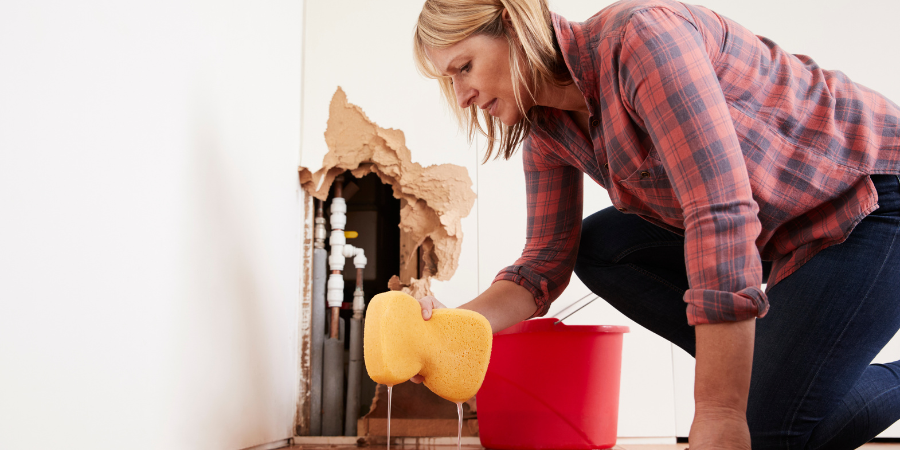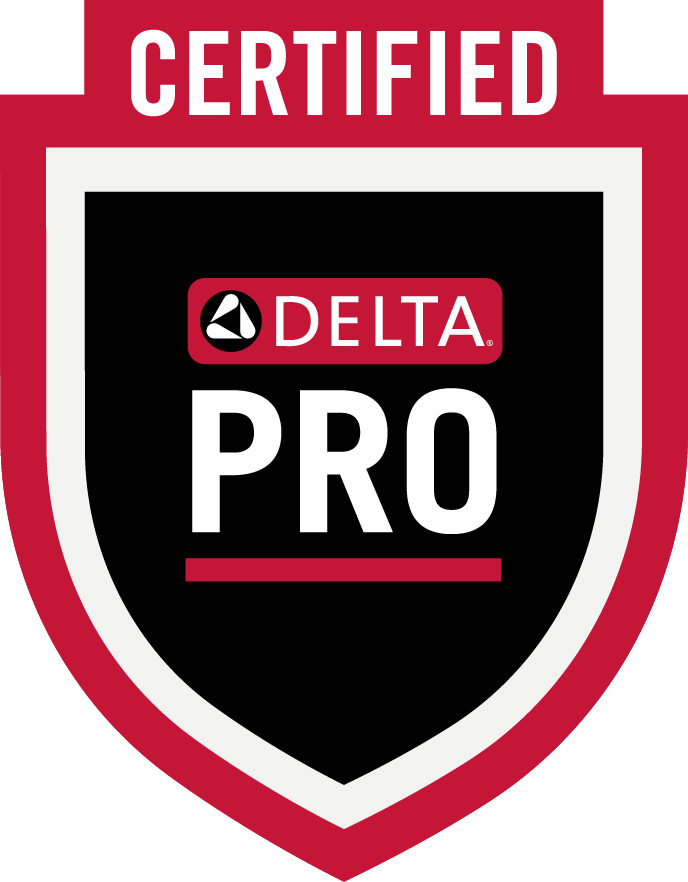Every drain in your home, from the toilet to the kitchen sink, empties into the main sewer line, which carries wastewater into the public sewer system or private septic tank. Without a well-working sewer line, the sanitation of your home is threatened, along with the safety and health of those living in it.
A sewer line collapse is a serious problem requiring immediate action since wastewater can back up inside the plumbing system and infiltrate the clean water supply. This article will discuss the common causes of a sewer line collapse and the signs your sewer line may be compromised. We will learn about the consequences of a collapsed line and offer some suggestions on how to prevent a sewer line collapse from occurring at your home.
Causes
A newly installed sewer line is designed for years of service and will likely function without issue. However, aging, improper disposal of household items, and other factors can compromise a sewer line and cause it to collapse.
Aging Plumbing
Aging plumbing is prone to weakened joints from general wear and tear. As plumbing pipes separate, they allow dirt and debris to enter the pipe interior. This accumulation of unwanted materials can play a role in pipe blockages since passing wastewater solids can get trapped by the dirt and form stubborn clogs that apply pressure to the pipe walls. If this pressure becomes too great, the pipe can collapse.
Another way aging plumbing is responsible for a sewer line collapse is from exterior pressure applied to the pipe. Heavy soil or soil compacted by heavy equipment driving on top of the line can crush a pipe that has become weak and brittle.
Tree Root Invasion
Over time, sewer lines develop tiny cracks and loosened joints, which permits raw sewage to leak out. This sewage appears as a buffet to nearby tree roots, which seek out sewage to support the tree’s growth. At first, fine roots enter the pipe, but within a short time, the entire sewer line can become filled with aggressive root systems that crack the pipe wide open, leading to a collapsed line.
Poor Installation
Using inexpensive pipe materials or shoddy installation methods can leave sewer lines vulnerable. A deep trench must be dug into which the pipe is laid, and if the backfill is not replaced correctly, the pipe will not be properly supported. This can lead to a sagging pipeline or one that leaks, further reducing the support system through erosion. An unsupported sewer line is ripe for collapsing.
Corrosion
When waste breaks down within sewer pipes, it produces a gas known as hydrogen sulfide, which creates sulfuric acid when combined with the oxygen in water. Sulfuric acid can decompose the interior of the sewer line, causing it to weaken and possibly collapse.
Hard water is also a leading cause of corrosion damage to sewer lines. The hard water minerals such as calcium and magnesium cling to pipe interiors, blocking the flow of wastewater and leading to blocked and collapsed pipelines.
Ground Movement
There are many reasons why the soil surrounding a sewer line may move. The home may be located in an area where earthquake activity is prevalent. Soil movement may result from fluctuating temperatures or heavy rains soaking the soil. Whatever the cause, soil that shifts can break pipe joints, leave areas of the pipe unsupported, and cause a complete collapse.
Signs
Sewer lines are buried deep below the ground, so they are not visible. This makes early detection of sewer line issues difficult, but some circumstances may occur that can help diagnose a problem. Here are four everyday situations where we can assume the sewer line has been compromised.
Foul Odors
Smelly drains throughout your home can indicate a sewer line collapse. With nowhere for the sewage to pass, it collects, and its odor can travel through the drainage system and permeate the living spaces.
Foul odors will also be apparent outside in the yard when sewage eventually works its way to the surface.
Slow Drains
A collapsed sewer drain will block wastewater from traveling into the public sewer line or private septic system and cause all drains from plumbing fixtures and water-using appliances to slow down or completely stop. This situation creates a huge inconvenience, but it pales compared to the next problem a collapsed line can cause.
Sewage Backups
When a sewer line is not working properly it may cause the flow of wastewater to reverse directions and spill out into floor drains, bathtubs, and sinks. This unsanitary plumbing disaster is one homeowners will remember for a long time since little compares to cleaning up raw sewage!
Yard Issues
Sinkholes are a byproduct of sewer collapses. As water leaking around the pipe erodes the soil, it will collapse, creating these crater-like swales. Additionally, the seepage can form puddles of foul-smelling wastewater on top of the lawn, bringing attention to a very serious issue.
Dangers
Not only do sewer line collapses leave obvious destruction in their wake they can also create hazardous conditions that affect the foundation of a home and the health of its inhabitants.
Structural Damage
Eroding soil can affect the very foundation of a home, leaving behind cracked walls and a foundation that is no longer strong enough to supply the support for which it was built. Wastewater can collect at the foundation edge and seep inside, destroying walls and ceilings and soaking carpets.
Health Issues
Sewage backups bring raw sewage into living areas. Not only is touching wastewater hazardous even the fumes can make people sick. Sewage contains viruses and bacteria and could lead to E. coli, hepatitis A, and gastroenteritis.
Raw sewage that backs up can also contaminate the freshwater supply. This is a severe issue requiring the care of a professional plumber.
Prevention
The key to dealing with a collapsed pipe is to avoid it altogether, so here are some tips on preventing it from occurring.
Inspections
Scheduling a sewer line inspection every three years is recommended. Taking a look at the condition of the pipe material and seeing the early development of problems can prevent a serious emergency situation from occurring. Small issues are much easier to correct and will help reduce costly damages in the future.
Cleanings
Proactive cleanings every five years will remove fine tree roots, corrosive material, and the beginnings of clogs and will keep the line flowing correctly.
Proper Disposal Habits
Many clogs are the result of improper disposal habits. Learning what is allowed and not allowed down your drains is essential because what you dispose of will eventually go into your sewer line. Items that expand when wet, such as diapers, paper towels, and kitty litter, must be avoided.
Replace Aging Plumbing
Aging plumbing is prone to cracking, and its brittle nature will collapse if not replaced once it reaches the end of its expected life. The cost of replacing an outdated sewer line has far-reaching benefits compared to dealing with a sewer line disaster and the damage it can create.
Looking For Sewer Line Repair, Maintenance, Or Replacement?
Sewer line maintenance is a practice that every homeowner should undertake to prevent a sewer line collapse. Watch for the signs that indicate a problem is in progress and proactively address the common causes of a compromised sewer line.
We offer repair, maintenance, and replacement of sewer lines when needed. Call us if you suspect a problem, and we will come out and offer our expert opinion and help you rectify any issues related to a poorly functioning sewer line. Our experience and honesty will help you quickly get your sewer line back on track. Call us today!
Need an emergency plumber in Orange County? Contact us today!






